- Home
- Lorenzo Carcaterra
Gangster Page 2
Gangster Read online
Page 2
Passengers built small fires around which they’d circle, using old wood and clothes in an attempt to stay warm and keep their children safe. It was an eight-day journey of pain, but one that each person on that stifling deck desperately needed to complete. They were leaving behind a land of dry soil and little promise for a place where, they were told, every one of their dreams would come true. That is what they needed to believe, what would give them the courage to go on as around them grandfathers died in silence and infants wailed their last breaths.
The dream of America was more than enough to make Paolino Vestieri want to live. Vestieri was a thirty-six-year-old shepherd from Salerno who had seen a thriving flock of three hundred reduced to a half-dozen, victims of hunger, thieves and sickness. He had an eight-year-old son, Carlo, and a wife, Francesca, eight months pregnant with their second child. Despite the daily difficulties, Paolino had no plans to leave Italy. But then, in the late winter of 1906, his father, Giacamo, was ambushed by a band of camorristas—the Neapolitan Mafia. Ignoring his pleas for more time to pay off a long-standing debt, they stripped him nude, hung him from an olive tree and sliced open his stomach. It would be three days before Paolino got word about his father and was able to find his body, and by then the crows and maggots had had their fill. When he returned home, he found Carlo missing and his wife screaming in ways he had never heard a woman cry before.
“They took Carlo!” she shrieked. “They took my son!”
“Who took him?” Paolino asked, grabbing his wife.
“The camorra,” Francesca managed to shout between screams. “They took my boy. They took him for the money your father owed. The money we cannot pay.”
“Stop your crying,” Paolino said, removing his hands from his wife and heading for the bedroom to get his lupara. “I will get Carlo.”
Francesca fell to her knees, still crying, head cradled in her hands. “I want my son,” she moaned. “I want my son. If they want revenge, tell them to take it from your father. Not from my boy.”
“They have already taken it from my father,” Paolino said, checking the lupara for shells as he walked past his wife and out the door.
• • •
PAOLINO STOOD IN the center of the small dining room, his eyes on his son and the man standing above him, smoking a thin cigar. The man inched the cigar from his mouth, curls of smoke clouding his thick, tanned face. He patted the top of Carlo’s head.
“He’s a good boy,” the man said, smiling. “Very quiet. No trouble to us. He’s almost a part of the family already.”
“I will get you your money, Gaspare,” Paolino said, the lupara hanging over his shoulder, partly hidden by the sleeve of his shepherd’s coat. “I give you my word. Now, please. Let me have my son.”
“Your father gave his word, too,” Gaspare said. “Many times. And I am still left with nothing. Besides, the boy will know a better life with us. We can give much more than you. And with your father out of the way, you will no longer have to live in debt. At least to us.”
Paolino looked down at his son and remembered the early mornings when he would lift him onto his shoulders and carry him down the slopes of the olive groves toward his flock. His head was filled with the happy sounds of a boy’s laughter, as he urged his father to go faster and catch up to the grazing sheep. That brief and blissful memory was quickly replaced by the image of a grown Carlo, now a hardened member of the camorra, glowering at him from the top of that very same olive grove, standing tall and silent as men with guns raced to fill their pockets with the wages of the working poor. Paolino Vestieri knew he must never allow the son he loved so much to grow up to be such a man.
He stepped closer to Gaspare and his son, ignoring the two men standing on either side of the room. “One way or another,” Paolino said, “my son will come with me.”
“You talk like a brave man.” Gaspare put the cigar back in his mouth, his voice turned harder. “But your actions will show where your courage takes you.”
“Let me have my son,” Paolino said, feeling the sweat race down his neck and back.
“I have no more to say to you.” Gaspare dismissed Paolino with a wave. “Tend to your flock, shepherd. Let me worry about the boy.”
Paolino fell to his knees and swung the lupara from his back to his hands. But he did not aim it at the criminal Gaspare. The gun was aimed directly at his son’s chest. The two men in the corner pulled their own handguns and aimed it at Paolino. Gaspare backed away from the boy, his smoldering cigar now cupped in his right hand. Carlo stared at his father, his lower lip quivering.
“You would kill your own blood?” Gaspare asked. “Your only son?”
“Better for him to be dead than to live with you,” Paolino said.
“You don’t have the heart for such a move,” Gaspare said. “I don’t even know if I do.”
“Then save him and let him come home with me.”
Gaspare stared at Paolino for several minutes, glaring into his eyes, taking slow puffs off the cigar.
“No,” he said, shaking his head slowly.
Paolino turned away from Gaspare and looked at his son. It was as if the two of them were now alone. The hard gaze of the boy’s eyes told his father all that he felt he needed to know. It would not take the camorra long to steal the young boy’s spirit and turn it against those he loved. They would seduce him with romanticized images of power and wealth, easily lure the child in with vivid portraits of a life much more alluring and appealing than that of a shepherd’s son. It would be a corrupt life, one without scruples or morals or decency. They had not had enough time to completely tear the boy away from him, not yet, but Paolino could see that such a path had already been paved. The boy would be a thief, a criminal and, one day, a murderer.
“I love you, Carlo,” Paolino said and squeezed the trigger.
He watched as the bullet’s impact sent his son hard against the stone fireplace. Carlo crumpled to the ground, his face inches from the sparks of the crackling wood, his eyes half-open, dead from his father’s hand.
“Now he belongs to no one,” Paolino said.
He tossed aside the lupara and walked toward the fireplace. He bent down, picked his son up in his arms, turned and left.
• • •
I KNEW THIS part of the story well. Its emotional impact had been used by many of the old man’s supporters to explain the harshness of his ways. A brother he would never know had been killed by a father he would never understand in a land he chose never to visit. No one could be expected to carry those wounds without scars. As I listened to Mary tell her tale well into the quiet of the night, I wondered how different it all might have been had Paolino Vestieri simply turned his back and not given in to his most primitive urge, not surrendered to the fear of having a son raised in “time-honored ways.” I wondered still if the old man had found his brother’s death the least bit ironic given the path of his own life. For there was never a doubt that Carlo’s murder was the seed that fostered the old man’s destiny.
• • •
PAOLINO VESTIERI BURIED his father and son on a hill overlooking the Bay of Naples. They would rest there, protected from the hot summer sun and chilly winds of fall by the same two large pine trees Paolino had once climbed as a boy. As the gravediggers shoveled dirt over the caskets, Paolino looked across the serene landscape and knew he was seeing it for the last time. Gaspare had reported Carlo’s murder to the local constable, making Paolino Vestieri something he never dreamed he would be—a wanted man.
He quickly and quietly sold his land, his winter clothes and what remained of his flock to a local merchant. The sum he collected was just enough to cover passage for himself and his wife aboard La Santa Maria, scheduled to depart Naples on the night of February 17, 1906. The doctor had warned Paolino that it would be best to delay the voyage until spring, after his wife had given birth.
“Each day we stay is a risk,” Paolino told him. “We must leave now.”
“It i
s not a way for a woman to bring in a new life,” the doctor said.
“There is no life here,” Paolino replied. “New or old.”
“Give your wife and child a chance,” the doctor pleaded.
“Taking them away is their chance,” Paolino said.
• • •
HIS WIFE, FRANCESCA, sat against a grease-stained wall, her face half-hidden by thick strands of brown hair. She rubbed her inflated stomach, her eyes squeezed shut, hoping to will away the constant pain. She was a farmer’s daughter, an only child raised like a son, toiling on ungiving land from first light of sun to last. Hardship was as familiar to her as the fresh tomatoes from her mother’s gardens. Yet nothing she had endured would be enough to harden her for the days ahead.
She had spoken her first words to Paolino at a town gathering to celebrate the final days of the harvest. She was sixteen then, her body as much woman as it was girl, her warm smile quick and easy enough to draw glances from a selection of interested young men. Her relaxed manner convinced even the most hesitant to approach and ask for a brief dance or extend an offer for a cup of homemade wine. She had seen Paolino in the town square on a number of occasions—picking up lumber with his father, laughing and joking with friends on his way home from school, standing in silent prayer in the back of the old wooden church. He was rugged and handsome and, at eighteen, his actions were more those of a man than most of the other boys in town.
He didn’t ask her to dance nor did he offer a cool drink. He didn’t think either would be the proper first approach. Instead, he handed her a white rose plucked from his mother’s garden, smiled and walked away. She returned the smile and the warm feeling in the center of her stomach told her that soon she would be a married woman.
“Those early years together were special,” Francesca once told her mother, as both women busied themselves preparing another in an endless cycle of large family meals. “I imagine they always are when two young people are in love. And when Carlo came along, he helped make our life together even better. Then it all ended. A life filled with sun was thrown into a dungeon. And from such a place no exit can be found.”
Paolino tried many times to explain his terrible action to his wife, but it was something she would never allow herself to understand. He truly believed that the life of a camorrista was far worse than an early death. He was prepared to go through life knowing he had murdered his own child than to see that boy grow up into one who preyed on those too fearful to return the fight.
“You think it better to be a starving shepherd?” Francesca asked him.
“His life would have been one stained by other people’s blood,” Paolino said.
“But now it is you who is marked with an even deeper stain,” Francesca said, staring at him with a cold, empty hatred. “Such a stain can never be erased. Not in God’s eyes. Not in the camorra’s. And never in mine.”
Paolino knelt before her and pointed to her bulging stomach. “We have another child,” he whispered. “We must do all that is possible to raise this one in the right way in the right place. Far from here. Far from these people.”
“We are these people.” Francesca fought back the tears she had shed each day since the rainy morning when she had laid her son to rest. “That cannot be changed, no matter how far away we run. We are this place. And we are these people.”
“I’m not,” Paolino said, standing.
“But my next child will be,” she said with a chill.
• • •
A THIN LINE of oil had made its way down from the engine room. It circled around one of the many small fires built from damp wood and rags, attempts by the passengers to allow shreds of light into their dark world. The oil licked at the edges of the fire, coming to rest just beneath a rusty kettle boiling dark brown water. The fire embraced the oil, causing sparks and flames to widen and spread and rush down the sides of the room like an agitated snake.
The boat rocked from the strength of the storm, heel to hull slapped by vicious waves. The stifling heat mixed uncomfortably with the cold blasts of air and ocean water that shot through cracks in the galley walls. The ship’s engines cranked wearily away, trying to keep pace with the storm, sprays of heat and moisture blasting into the crowded hold. A half dozen oil lines were now flowing out of the battered engine room, sliding past feet and rodents, inching close to the heat of a dozen small fires.
They heard the screams before they smelled the smoke and then the panic took control.
Soon, heat and flames were at full attack, sending people running in a mass for the one door leading out of the cargo hold. They climbed over one another, forsaking friendships and family for the sake of one clean breath. The rush to escape left no room for the weak and the elderly who were so easily cast aside. The fires spread quickly and plumes of dark gray smoke covered the hold like mounds of old wool. A young woman, the shorn ends of her dress swallowed by fire, stood with her arms held out and her head tilted back, welcoming the rush of the heat and the call to death. A child was left alone against a wet wall, his small hands covering his ears, his eyes shut, willing himself to another, safer place. An old man sat on a crate in the center of the hold, a hand-rolled cigarette in his mouth, a picture of peace in a place gone mad with fear.
“This cannot be God’s will,” a lone woman wailed, her body crushed by the rush of bodies. “We have done nothing to deserve this much hatred.”
“Look around you,” a man shouted back at her. “And tell me how you can still believe that there is a God.”
“I will believe in Him till the day I die,” the woman insisted, her body weak, her eyes defiant.
“That day has already begun,” the man said and squeezed past her, hoping to make it out of the inferno.
• • •
PAOLINO VESTIERI STOOD and watched the rush of flames inch their way to the engine room. He knew it was now down to a question of minutes. He looked at Francesca, overcome by the smoke, white strands of spittle dotting her lips and sweat streaking her brow. He reached over and stroked her face, rubbing his dirty fingers across soft cheeks, and kissed her gently on the lips.
“Ti amo, cara,” he said to the woman he loved.
Filomena, the midwife, a scarred old woman in a worn black dress and tattered shawl, leaned her bulk forward and pressed against Francesca’s stomach. Francesca moved her legs farther apart, her feet resting against the back of an old man. She pulled her head up and held her eyes shut, waiting for the pain in her stomach to pass. The screams and cries around her seemed to exist in a faraway place, the smoke that seared her lungs arrived from a territory untouched by madness and ruin. The sharp pangs had been coming at a steady rate for the last hour, knifelike stabs that forced her to dig her nails into the splintered floorboards, covering her fingers in blood.
She opened her eyes and looked up at the midwife.
“Is there enough time?” she asked.
“Only the angels know,” Filomena said.
She rubbed and massaged Francesca’s legs and thighs with rough, thick hands, inching the baby along, one painful movement at a time.
“What do you need me to do?” Paolino asked, standing over the midwife’s shoulders.
Filomena turned her head, arching one heavy eye up toward Paolino, staring at him for several moments. “Do you love this woman?” she asked.
“Very much,” Paolino said, avoiding eye contact.
“Then stay behind me and look nowhere but into your wife’s eyes.” Filomena then turned back to Francesca, leaned closer to her and shouted above the din around them. “It is time now, little one,” she said, the smoke from the fire enveloping both of them, its force thick enough to hold. “Take full breaths if you can and push with all your strength. The rest you will leave to me.”
Francesca Conti Vestieri nodded and looked around her one last time as she said a silent prayer, wishing that out of all this debris, filth, fire and danger a healthy child would be born. She looked above the midwife at
her husband. “Promise me one thing,” she said.
“What?” He reached over Filomena, grabbing both of his wife’s hands, holding them tight, the blood from her cuts rubbing against the soot and scabs on his skin. He stared into her eyes and through her pain and the heat, the anger and the fear around them, could still taste her fierce hatred.
“You will build a good life in this new country for this child,” Francesca said. “Promise me that.”
“I promise,” Paolino said.
“Promise me!” Francesca shrieked.
Paolino leaned in closer to his wife, his lips brushing against the side of her cheek.
“I promise you,” he whispered. “As your husband and as a man.”
Francesca nodded, her head and body damp with sweat and blood, her torso cramped.
Paolino stepped away from her, his eyes burning with tears, smoke charring his nostrils and filling his lungs. He looked around, saw bundles of people climbing above one another, reaching for a sky they could not see. The hold was a cauldron of flames, strewn bodies, water bursting through galley holes, cries for help and shouts of despair all blended as one. The hull of the ship was tilted to the right, its aged body tired of the fight, eager to surrender to an ocean that knew no mercy.
The youthful promises of what had once been Paolino Vestieri’s dreams of a simple life were now reduced to charred rubble and warm ashes.
• • •
FILOMENA WAS CRUNCHED down, her elbows sliding on the floor, her hands buried inside Francesca’s legs, feeling for signs of a new life. A full fire was burning just behind her, but the old woman ignored all but the task of her chosen profession.
“I see the head,” Filomena shouted above the crowd noise, lifting her own head ever so briefly. With a full dose of her strength she tore at the lower rungs of her dress, not stopping until her hands were crammed with cloth. Filomena wiped the blood from the sides of Francesca’s legs with the remains of her torn dress, smiling down at the drained young woman.
Francesca bit down on her lower lip, cutting into the skin. “How much longer, signora?” she asked through blood and clenched teeth.

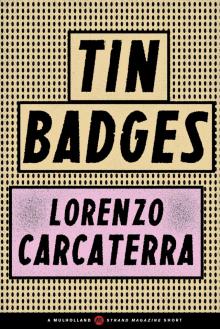 Tin Badges
Tin Badges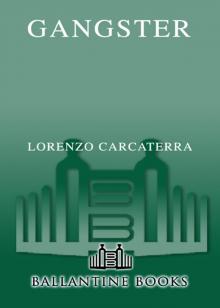 Gangster
Gangster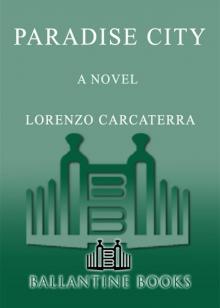 Paradise City
Paradise City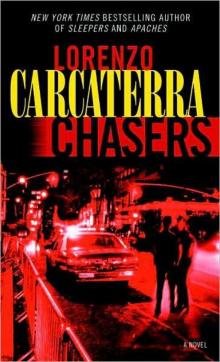 Chasers
Chasers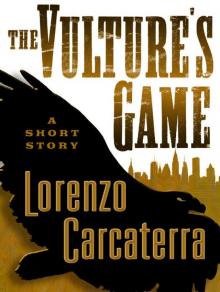 The Vulture's Game
The Vulture's Game Payback
Payback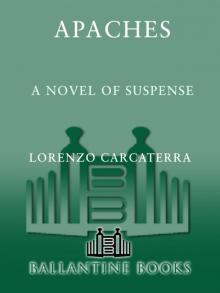 Apaches
Apaches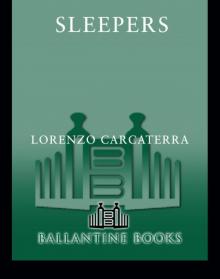 Sleepers
Sleepers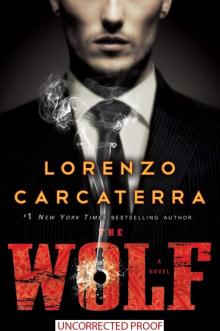 The Wolf
The Wolf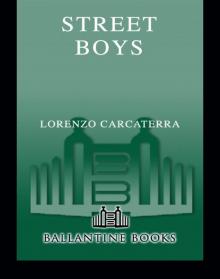 Street Boys
Street Boys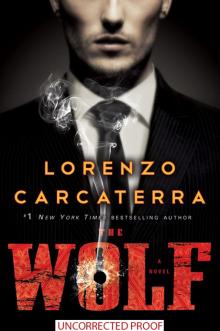 The Wolf: A Novel
The Wolf: A Novel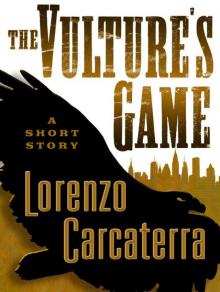 The Vulture's Game (Short Story)
The Vulture's Game (Short Story)